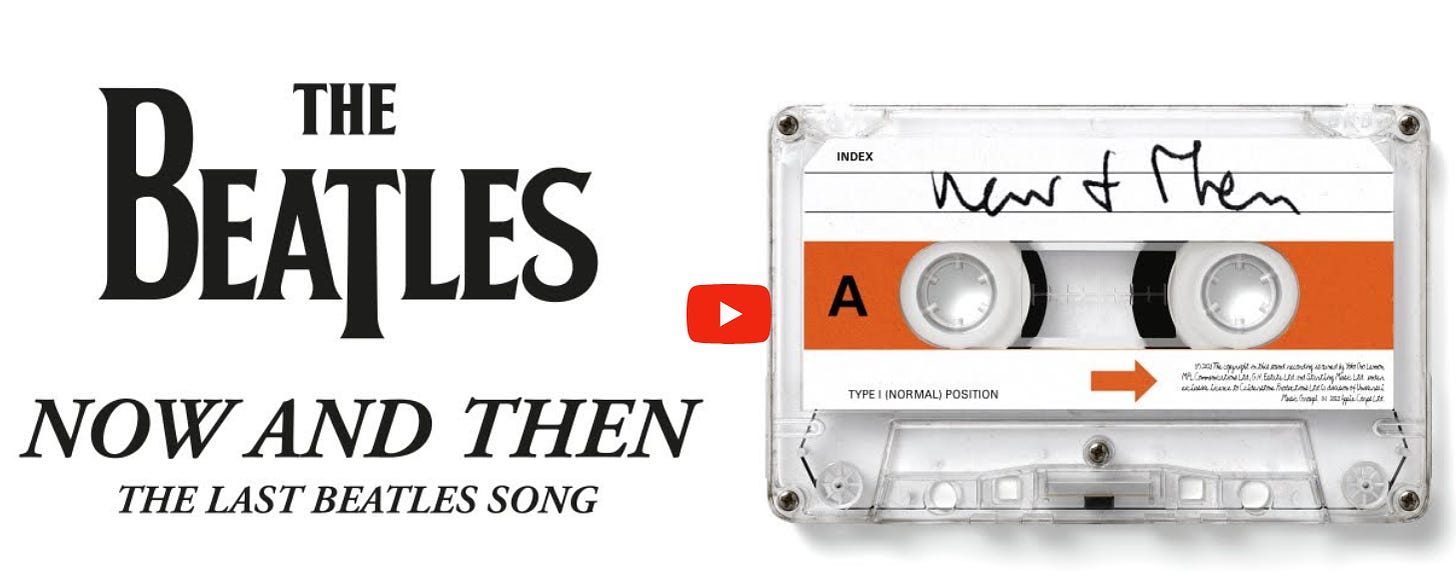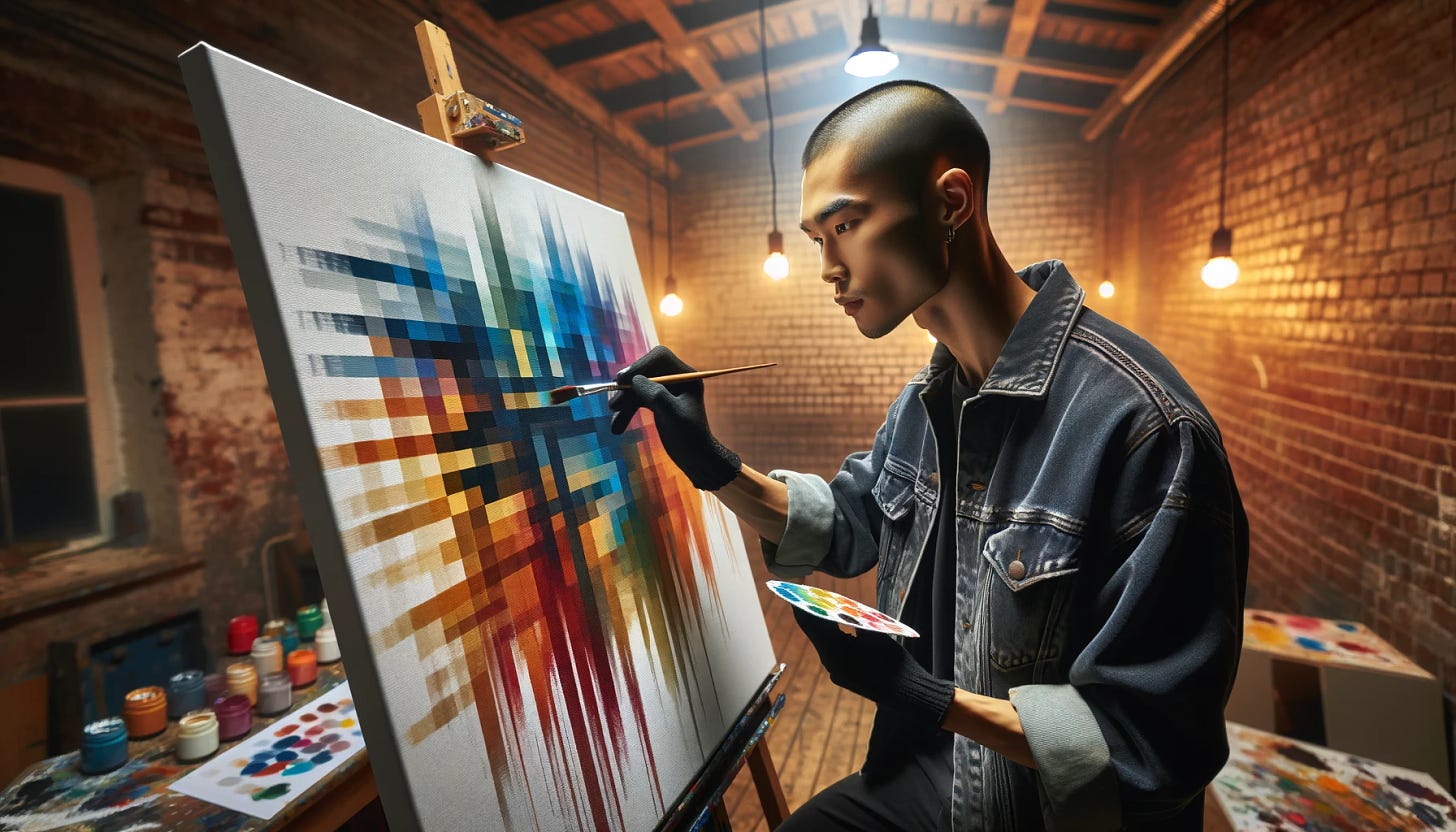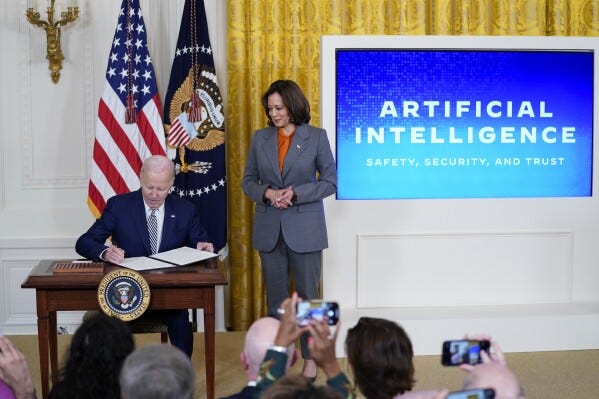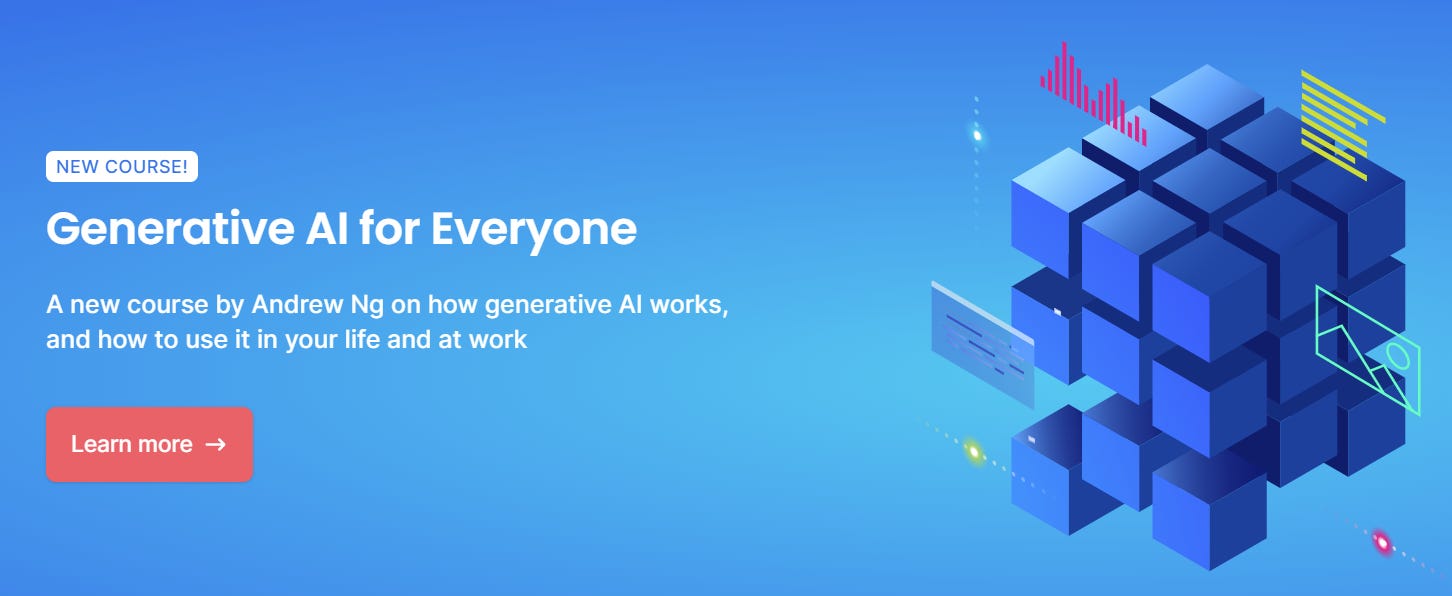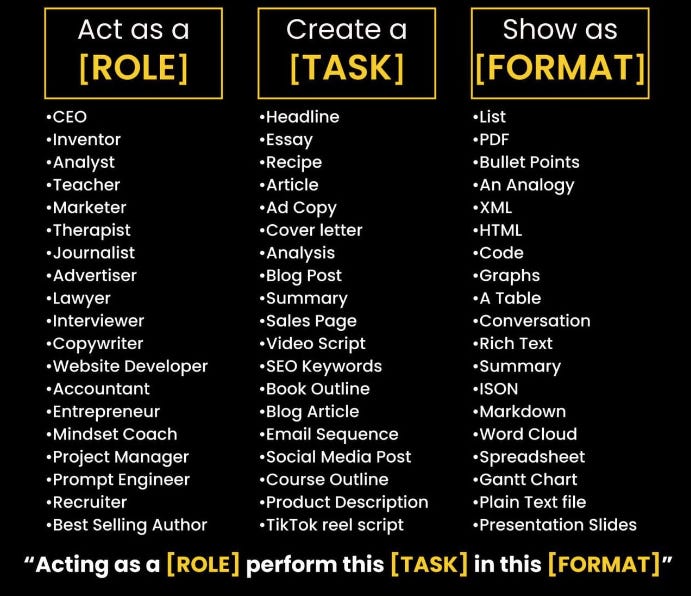The Beatles and AI: A 'Now And Then' Collaboration
PLUS: AI and Art, Biden's AI Executive Order Sparks Controversy, Learn GenAI for Free with Deeplearning.ai, and AI Role-Play
Hola, and welcome back. This week's edition will cover the following topics:
A Beatlemaniac's AI Wish: The Last Beatles Song Powered by AI
The Dawn of AI-Enhanced Artistic Creation
AI and the Oval Office: Biden's Executive Order Raises Questions
Deeplearning.ai New (and Free) Generative AI Course
AI Productivity Tip: Acting as a [ROLE], perform this [TASK] in this [FORMAT]
Let’s go!
1/ The Beatles' 'Now And Then': The AI-Assisted Masterpiece
Today marked the worldwide release of a new classic. The Beatles have once again captured our hearts with the AI-assisted release of 'Now And Then,' a track that intertwines their timeless sound with the future of music production. As a Beatles fan and musician, this song strikes a personal chord, showcasing how AI can act as a bridge between eras.
Using machine learning to isolate John Lennon's vocals, the production team, including Paul McCartney and Ringo Starr, breathed new life into a once-unfinished demo. The original recording was simply John playing the piano with a TV playing in the background. Now, we can isolate John's voice from the piano and the television noise. The result is a track that feels authentically Beatles, merging the familiar warmth of their music with the cutting-edge innovation of AI.
'Now And Then' is more than a song; it's a celebration of The Beatles' enduring legacy through the lens of modern AI, offering a fresh experience of their genius. This release not only pays tribute to the past but also paves the way for the future of creative collaboration with AI. Now, indulge yourself in their music here: YouTube, Spotify.
2/ Art in the Age of AI: A New Creative Synthesis
A recent study titled “Generative AI, Human Creativity, and Art,” which examines text-to-image AI platforms such as Midjourney and Dall-E, analyzes over 4 million artworks from more than 50,000 users and demonstrates a significant impact on artistic creation:
Artists' productivity doubled in the first month, later stabilizing at a 25% increase.
Peer ratings of art improved by 50% over time.
Novelty in art initially peaked but then showed a trend towards common themes.
AI adoption led to a more even distribution of recognition among artists.
These trends suggest that while AI expands creative possibilities, it also emphasizes the need for unique ideas and curation—skills crucial for artists in the AI era. As generative AI becomes integral to creative pursuits, the essence of human creativity may shift towards the mastery of ideation and artistic discernment. This 'generative synesthesia' indicates a future where anyone with a creative vision can contribute to the artistic tapestry, redefining the landscape of human expression.
3/ Biden's AI Executive Order: A Step Forward or Back?
A few weeks ago, I flagged Bill Gurley's perspective on the potential pitfalls of AI regulation, highlighting the risk of established players leveraging government policy to stifle competition and innovation. Fast forward to this week, and his concerns might have materialized. The Biden administration signed an Executive Order on AI that has drawn criticism from some of the most intelligent minds in technology. Ben Thompson of Stratechery articulates a growing unease, suggesting that the order's prescriptive nature may inadvertently constrain the creativity needed to drive technological progress. He argues that the order wrongly tries to limit an unknowable future and lacks trust in human creativity to invent new technologies responsibly. Instead of the minimal regulation that helped past innovations like the internet flourish, the order adopts a prescriptive, restrictive approach more likely to stifle progress. He warns of a 'societal sclerosis,' a failure to understand and trust in the responsible development of emerging technologies like AI, which could lead to stifling the innovation essential for addressing global challenges.
Echoing this sentiment, AI luminary Andrew Ng raises alarms over the White House's invocation of the Defense Production Act to govern AI, a move he believes conflates civilian and military AI applications. Ng cautions against the order's approach to computation thresholds for model training, arguing it could hinder open-source contributions and innovation, particularly affecting smaller entities lacking the resources to navigate complex compliance demands.
These critiques reflect a broader debate on the balance between regulation and innovation. The path forward must ensure consumer protection without curtailing the potential for AI to forge transformative paths across industries and society.
4/ Andrew Ng's New Generative AI Course: Enroll for Free
For my friends and colleagues searching for top-notch Generative AI learning resources, look no further than Andrew Ng's latest course on Coursera, "Generative AI for Everyone." Launched this November and available at no cost, it's a masterclass that simplifies complex AI concepts for all. You can enroll here.
And if you want more, here are a few more gems—all free:
Microsoft's AI Fundamentals: A solid starting point for those new to AI.
DataBricks' Generative AI Fundamentals: A deep dive into generative models and their applications.
Google's AI Courses: Google's suite of courses to sharpen your AI and cloud skills.
5/ AI Productivity Tip: Mastering Role-Based Prompts in ChatGPT.
To enhance your experience with ChatGPT, adopt a structured approach encompassing Role, Task, and Format. Define the model's role, specify the task, and select an output format for optimal precision and results. This methodology streamlines interactions and maximizes potential outcomes. To further enrich the engagement, I consistently pose follow-up questions, such as requesting alternative perspectives or additional options after task specification. This ensures a comprehensive and varied set of responses. So next time, try the following prompt:
Acting as a [ROLE], perform this [TASK] in this [FORMAT]
Feedback: Send me a note to my email with your suggestions.
Catch up on previous editions.
Stay curious,
Luis Poggi




